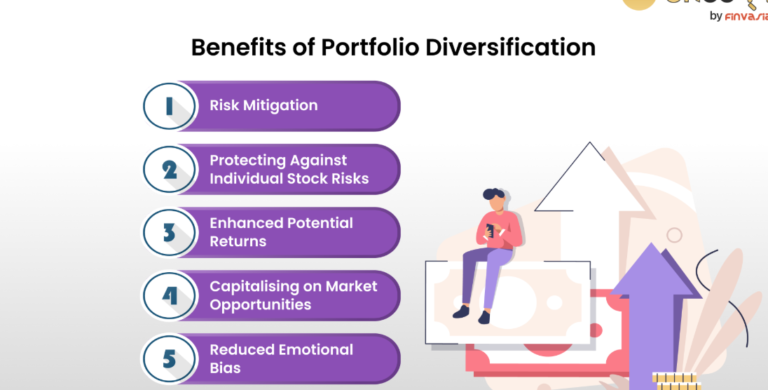
In the financial world, BlackRock and Blackstone are often mentioned together, but they represent two distinct entities with different focuses, strategies, and histories. Both firms play crucial roles in the investment landscape, yet their operations and purposes set them apart. aThis article will dive deep into the key distinctions and similarities between BlackRock and Blackstone, exploring their structures, investment strategies, and overall impact on the financial markets. By the end, you’ll clearly understand “BlackRock vs. Blackstone.”
A Brief History of BlackRock
Founded in 1988, BlackRock began as a risk management and fixed-income institutional asset manager. The firm initially catered to large institutions, including pension funds and government entities. Over the years, it evolved and expanded its investment offerings, becoming a global leader in the investment management space.
- 1999: BlackRock went public, allowing it to raise capital for further expansion.
- 2006: The acquisition of Merrill Lynch Investment Managers marked a significant turning point, boosting its assets under management (AUM).
- 2010: BlackRock solidified its position as the most significant asset manager globally.
Today, BlackRock manages over $9 trillion in assets, making it a powerhouse in the financial industry. Its expertise lies in various investment types, including equities, fixed income, alternatives, and multi-asset strategies.
A Brief History of Blackstone
Founded in 1985 by Stephen Schwarzman and Peter G. Peterson, Blackstone started as a mergers and acquisitions advisory firm. Over the years, it became a global investment firm with a diverse portfolio.
- 1991: Blackstone launched its first private equity fund, marking its entry into the alternative investments space.
- 2007: The firm went public, significantly increasing its capital and reach.
- 2021: Blackstone became the world’s largest alternative investment firm, with assets exceeding $950 billion.
Unlike BlackRock, Blackstone focuses primarily on private equity, real estate, hedge fund solutions, and credit. The firm’s investment approach emphasizes acquiring and managing assets for long-term value creation.
Investment Strategies: BlackRock vs Blackstone
Understanding the investment strategies of both firms is crucial in discussing “BlackRock vs Blackstone.”
BlackRock’s Investment Approach
- Diversification: BlackRock’s investment philosophy hinges on diversification. The firm offers various products and services, including index funds, mutual funds, and exchange-traded funds (ETFs).
- Risk Management: BlackRock utilizes advanced technology and analytics to focus on risk management and ensure clients are well informed about their investments.
- Sustainability: The firm has pioneered sustainable investing, promoting environmental, social, and governance (ESG) criteria in its investment processes.
Blackstone’s Investment Approach
- Private Equity Focus: Blackstone primarily invests in private equity, seeking opportunities in undervalued companies and improving their operations for long-term growth.
- Real Estate Investments: The firm is one of the largest investors globally, leveraging its extensive network to identify lucrative property opportunities.
- Alternative Investments: Blackstone also invests in hedge funds and credit markets, providing clients diverse investment avenues.
Size and Scale: Comparing BlackRock and Blackstone
When comparing “BlackRock vs Blackstone,” size and scale are essential factors.
FirmAssets Under Management (AUM)Year EstablishedPrimary Investment Focus
BlackRock Over $9 trillion 1988 Equities, fixed income, ETFs, and more
Blackstone Over $950 billion 1985 Private equity, real estate, alternatives
As you can see, BlackRock dwarfs Blackstone regarding AUM, primarily due to its focus on traditional asset management and a broader client base. In contrast, Blackstone has carved a niche in alternative investments, which has helped it achieve substantial growth despite having a smaller asset base.
Client Base: Who Do They Serve?
Both firms cater to different client segments, emphasizing the differences in “BlackRock vs Blackstone.”
BlackRock’s Client Base
- Institutional Investors: BlackRock serves many institutional clients, including pension funds, endowments, and sovereign wealth funds.
- Retail Investors: Through its various investment products, BlackRock also caters to individual investors, offering them a chance to invest in global markets.
- Financial Advisors: The firm provides resources and tools to financial advisors, helping them build tailored portfolios for their clients.
Blackstone’s Client Base
- High Net-Worth Individuals (HNWIs): Blackstone primarily attracts HNWIs looking for private equity investments and alternative assets.
- Institutional Investors: Like BlackRock, Blackstone also serves institutional clients, particularly those seeking access to alternative investments.
- Family Offices: Many family offices that manage the wealth of affluent families choose Blackstone for its expertise in private equity and real estate.
Performance Metrics: Evaluating Success
When comparing “BlackRock vs Blackstone,” it’s essential to consider the performance metrics of both firms.
BlackRock’s Performance
- Investment Returns: BlackRock’s diversified investment approach has generally resulted in competitive returns, mainly through its popular ETFs.
- Sustainability: BlackRock has made significant strides in sustainable investing, attracting investors focused on ESG criteria.
- Market Share: The firm holds a substantial market share in the asset management industry, further solidifying its leadership position.
Blackstone’s Performance
- Private Equity Returns: Blackstone is known for its impressive returns in private equity, which often outperform traditional investment options.
- Real Estate Growth: The firm’s track record of successful real estate investments contributes to its overall growth.
- Innovative Strategies: Blackstone’s ability to adapt and innovate in the alternative investment space has allowed it to thrive even in fluctuating markets.
Regulatory Landscape: Navigating Compliance
Given the nature of their businesses, both firms operate under strict regulatory frameworks. Understanding the regulatory environment is crucial in the discussion of “BlackRock vs. Blackstone.”
BlackRock’s Regulatory Environment
- Securities and Exchange Commission (SEC): As a registered investment advisor, BlackRock is subject to SEC regulations, ensuring transparency and compliance.
- Fiduciary Duty: BlackRock is obligated to act in the best interests of its clients and adhere to fiduciary standards in its investment practices.
Blackstone’s Regulatory Environment
- Investment Company Act: Blackstone must comply with the Investment Company Act, which governs its private equity and hedge fund activities.
- Compliance Framework: The firm has a robust compliance framework to navigate alternative investments’ complexities and ensure they meet regulatory requirements.
Recent Developments and Future Outlook
As the financial landscape continues evolving, BlackRock and Blackstone are adapting to new trends and challenges. Here’s a glimpse into recent developments and future outlooks for each firm.
Recent Developments for BlackRock
- Expansion of ESG Products: BlackRock has proactively expanded its range of sustainable investment products, responding to the growing demand for responsible investing.
- Technological Innovations: The firm continues to invest in technology, enhancing its investment management capabilities and client service.
Recent Developments for Blackstone
- Increased Real Estate Investments: Blackstone has ramped up its real estate investments, particularly in logistics and industrial properties, reflecting current market trends.
- Focus on Infrastructure: The firm has further diversified its portfolio by investing in infrastructure projects, targeting long-term growth opportunities.
Conclusion: Choosing Between BlackRock and Blackstone
In the ongoing discussion of “BlackRock vs Blackstone,” it becomes clear that while both firms excel in their respective areas, they cater to different types of investors and investment strategies.
- Choose BlackRock if you’re interested in a diversified approach to traditional asset management, including equities, fixed income, and ETFs. Their focus on sustainability and risk management makes them attractive to many investors.
- Choose Blackstone if you prefer alternative investments, particularly in private equity and real estate. Blackstone’s strong track record in these areas makes it a compelling option for high-net-worth individuals and institutional clients looking for higher returns.
Ultimately, the choice between BlackRock and Blackstone depends on your investment goals, risk tolerance, and the type of assets you wish to include in your portfolio. Understanding the distinctions between these two giants will help you make informed decisions as you navigate the complex investing world.






